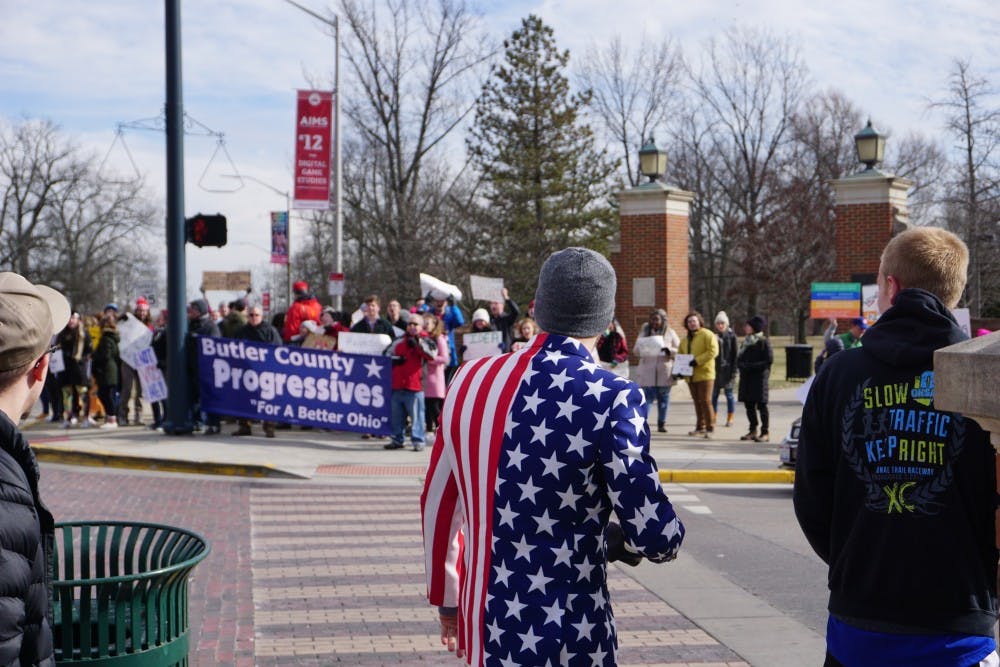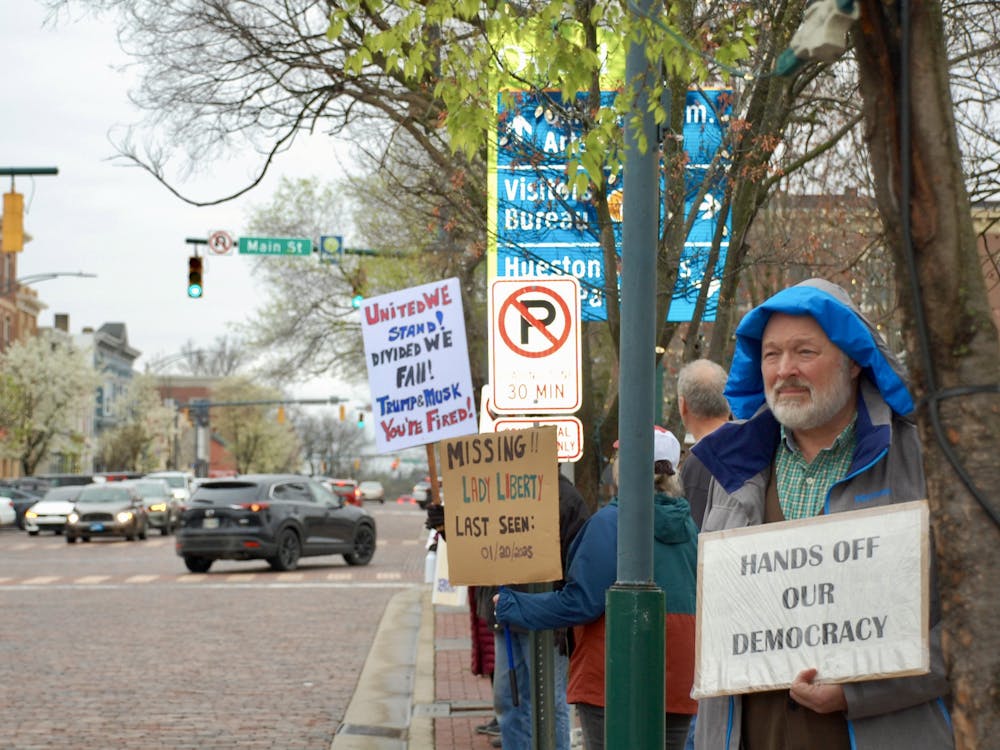Faculty are noticing a shift in the political conversations among their students in this post-election semester.
According to some undergraduates, attending any POL-designated course last semester was a rough experience. Domestically, the political climate was volatile. Personally, the feeling of being put on the defense was constant.
Erin Glynn, a freshman political science student, saw that her classmates adapted to the uneasy climate in differing ways; some chose to lash out when confronted with provocation, some withdrew into a bubble of like-minded peers.
This behavior did not fall on oblivious minds -- professors in the Political Science Department at Miami University had taken notice.
"Everyone was very emotional, but also emotional in the wrong way," said Dr. Michael Marshall, a professor of modern world governments.
The chair of the Political Science Dept., Patrick Haney, said that he is "accustomed to seeing student involvement in politics rise during election season and fall in the interim," but that this election was intense in a way he had not experienced before at Miami.
The tendency for outspoken, often partisan voices, to dominate classroom discussion complicated the efforts of many professors who sought substantive discourse among their students, according to some professors in the Political Science Dept..
"Rather than people really diving in and learning, they were almost fearful of some type of backlash," Marshall stated.
Nicole Pankiewicz, also a professor in the Political Science Dept., agreed.
"Last semester there was so much tension, and anger, and resentment. It was not fun teaching last semester. It was a big challenge," said Pankiewicz.
Kirsten Fowler, a senior Diplomacy and Global Politics major, agrees that "it was difficult to have substantive arguments" with classmates last semester.
But that was last semester.
Enjoy what you're reading?
Signup for our newsletter
Professors have noticed that the the ascension of Donald Trump to the presidency has inspired students to learn more about the minutiae of government. Pankiewicz in her American politics courses has found that students care more about politics and are consistently engaged in the classes in general. Students that are "more connected" and eager to "know what's going on," in the words of Pankiewicz, has made for amazing classroom discussions.
"[Discussions] feel more open. Last semester, it felt like people took sides -- it was that kind of election. But that somehow didn't carry over to this semester," said Pankiewicz.
"Our students are so much more engaged this semester," said Marshall. "[Students] want to know why, they want to know how politics works."
Discussions that feel more open, that are less about partisan politics, look like positive steps in rebuilding the fractures in American democracy. These discussions, Marshall said, are encouraging people to be "mobilized again," and learn "more about their government, and understand that being a citizen requires being informed."
If the rediscovery of American citizenship, and the redefining of what it means to be a participant in the political process are a result of the Trump presidency then Marshall believes that, "Donald Trump will make America great again by getting people to think of their citizenship as something more than an inconsequential thing to be taken for granted."




